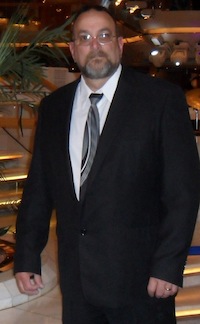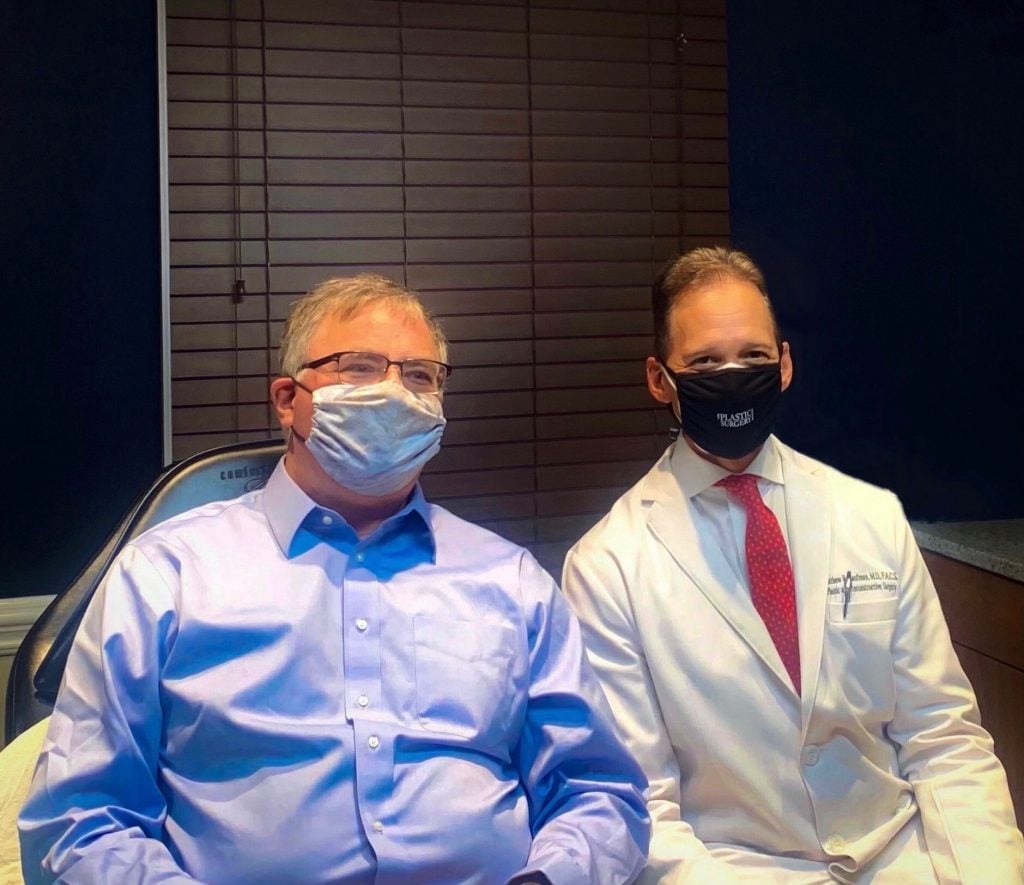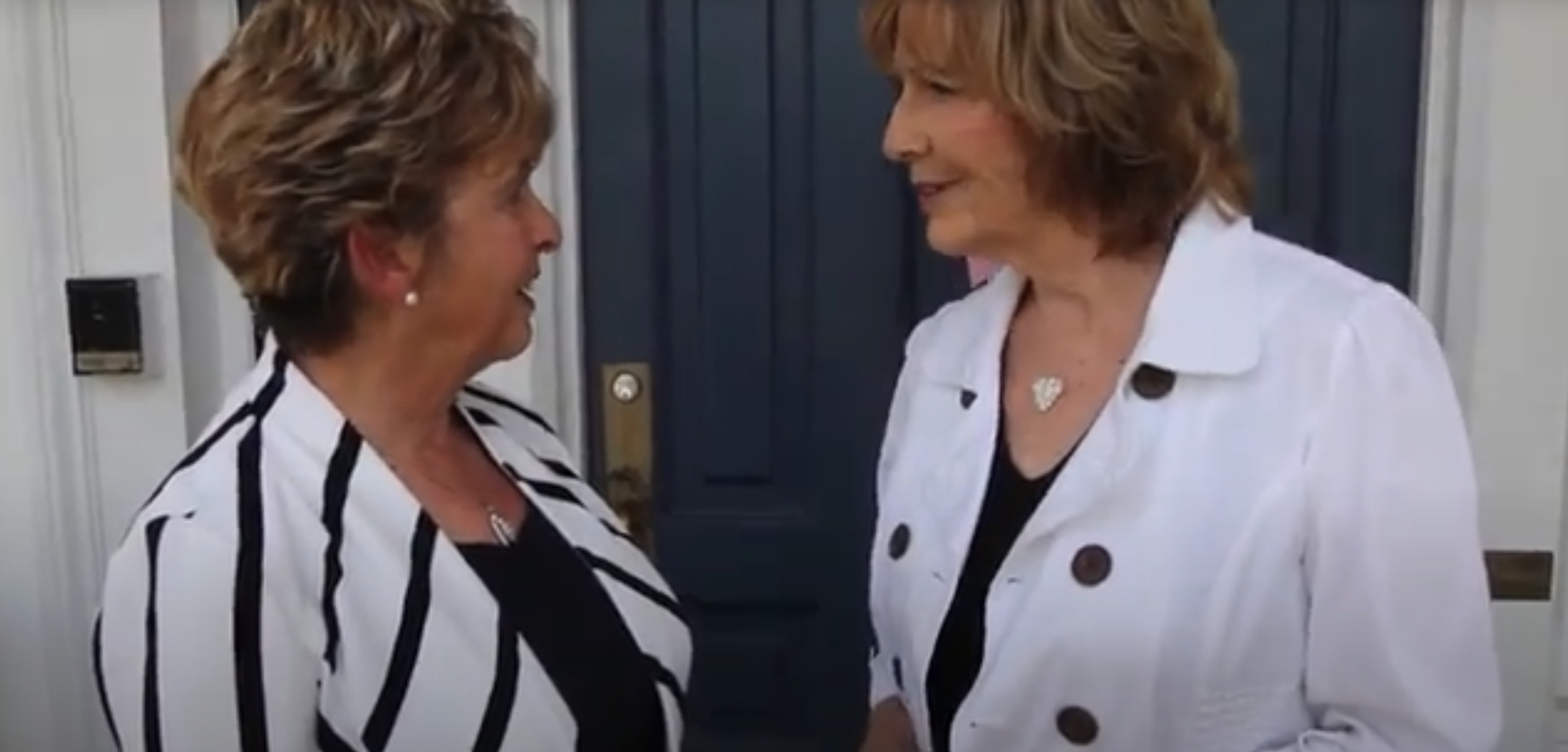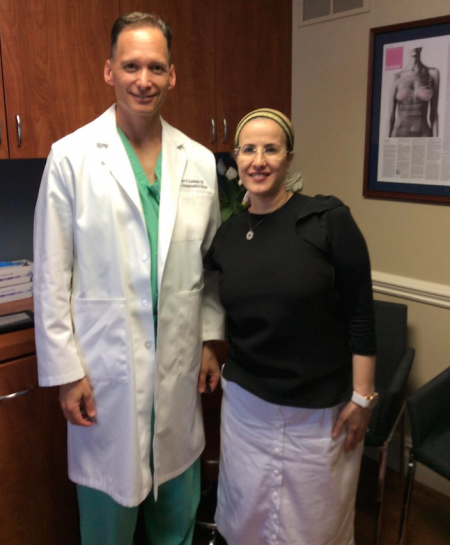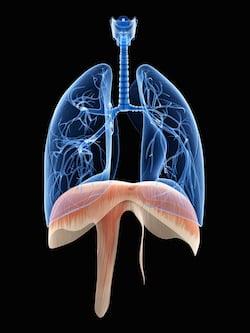30th Surgery Makes the Difference
Carpenter Frank Sussina of Bayville, New Jersey, was on the job for 25 years when he suffered his first accident, and it was catastrophic. He was putting up a roof on a building when a negligent piece of loose plywood gave way. He fell 32 feet, shattering both legs, breaking his back, and snapping his neck. That was in 1993.
Since that time, the almost 58-year-old had a total of 29 surgeries: among them were those to rebuild his knees, 2 back surgeries, and one for his neck. He has been treated by orthopedists, a neurosurgeon, and pain management specialists. In 2001, he had a bilateral knee replacement, which led to crippling pain and numbness in his feet.
He went online, and as he tells the story, “I read an article on the website with an interview just like you’re doing with me right now. I said to my wife: let’s go.” The story was on The Institute For Advanced Reconstruction’s website, the practice of which Dr. Rose is a member (www.advancedreconstruction.com).
In September 2012, Sussina went to see Dr. Rose. “He gave me a 50/50 chance he could help me. I accepted that.” At the time, Sussina was on a daily dose of 400 milligrams of morphine and 90 milligrams of Percocet.
Dr. Rose did the procedure, Sussina’s 30th surgery, on October 14th. “Since then, I haven’t taken any pain medicine at all.” Sussina, who now walks without any foot pain, was finally able to go back to work as a general contractor for more than 2 days a week.
Dr. Rose says, “Frank’s remarkable recovery is a testament to the power of this technique. We can’t help everyone with it, but when it works, it’s truly amazing how we can transform people’s lives in a positive way.”
Painful, tingling feet are a typical symptom of peripheral neuropathy. Nearly 20 million Americans suffer from neuropathy, a chronic condition that results from damage to or compression of the nerves outside the spinal cord and brain. Common causes of neuropathy include diabetes, trauma, chemotherapy, and other medications.
Fortunately, in select cases, neuropathy can be improved or reversed with nerve decompression surgery. Performed on an outpatient basis and taking less than an hour, the procedure involves relieving the pressure on a nerve by surgically removing the constricting tissue or bone, or widening the canal encasing the nerve. Decompression surgery is successful in relieving the symptoms of neuropathy in up to 90% of well-selected patients. The procedure is minimally invasive, requiring only small incisions over the affected area, thus promoting a quicker recovery.
Of Dr. Rose, Frank Sussina says, “He was the most polite doctor I’ve ever been to. He explained everything in detail, with no big words. He put it all on the table. From the nurses to the technicians, the staff at the Ambulatory Surgery Center was excellent. And I’ve recommended four more people to Dr. Rose.”


